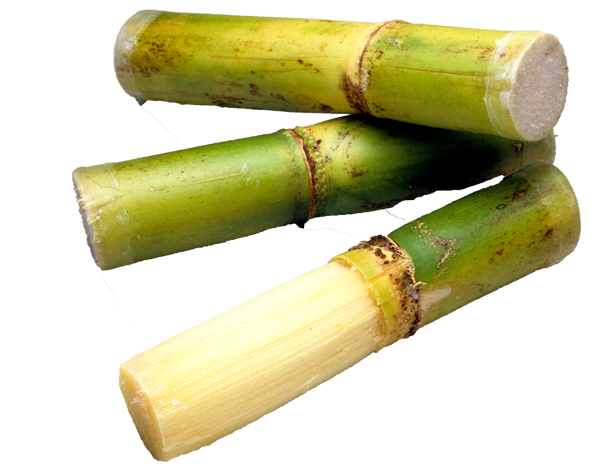How Sugar and Cane Are Processed for Use in Everyday Products
How Sugar and Cane Are Processed for Use in Everyday Products
Blog Article
Why Walking Stick Sugar Processing Chemicals Are Crucial for Modern Sugar Refining
The role of walking stick sugar handling chemicals in modern sugar refining can not be overstated, as they are indispensable to boosting both the efficiency of extraction and the general high quality of the final item. Agents such as phosphoric acid and specific flocculants are used to remove impurities, resulting in sugar that not only meets consumer expectations but likewise sticks to industry requirements.
Duty of Processing Chemicals
The efficacy of cane sugar handling pivots dramatically on the strategic application of processing chemicals. These chemicals play a critical role in enhancing the efficiency and high quality of sugar extraction and refining. From the first stages of juice removal to the final filtration actions, handling chemicals help with numerous crucial operations.
In the removal phase, chemicals such as phosphoric acid and calcium hydroxide are employed to enhance the clarification procedure, assisting to get rid of pollutants and suspended solids from the cane juice. This not just improves the yield but additionally guarantees the quality of the final item. Additionally, agents like flocculants help in the rapid settling of contaminations, thus simplifying the general procedure.
As the processing advances, chemicals are made use of in decolorization and crystallization phases. Activated carbon and ion exchange materials offer to get rid of shade and odor, making certain that the refined sugar satisfies consumer high quality requirements. Inevitably, the duty of processing chemicals extends past functional efficiency; they dramatically impact the sensory attributes of the end product, adding to market competitiveness. Therefore, the meticulous option and application of these chemicals are crucial for attaining ideal outcomes in walking stick sugar handling.
Secret Kinds Of Chemicals
Walking cane sugar processing relies upon a selection of essential chemicals that promote each stage of production. These chemicals play vital functions in making clear, whitening, and cleansing the sugar removed from cane.
One main classification of chemicals includes flocculants, such as polyacrylamide, which aid in the information procedure by advertising the gathering and settling of contaminations. In addition, calcium hydroxide is commonly employed to neutralize level of acidity and assist in the elimination of non-sugar components.
Bleaching representatives, such as activated carbon and sulfur dioxide, are used to decolorize the syrup, leading to a more clear last item. These chemicals help get rid of color substances that might influence the sugar's look and marketability.
In addition, phosphoric acid acts as a pH regulatory authority throughout the handling stages, guaranteeing ideal conditions for the enzymatic activities included in sugar extraction and purification.
Various other vital agents consist of edta (ethylenediaminetetraacetic acid), which chelates steel ions that might catalyze unwanted reactions, and salt hydroxide, which helps in pH control throughout the refining procedure. Jointly, these chemicals enhance performance and make sure a premium walking stick sugar product.
Advantages for Sugar High Quality
Often ignored, the use of specific handling chemicals considerably enhances the total top quality of cane sugar. These chemicals play a critical role in refining procedures, guaranteeing that the end product satisfies rigorous market criteria for purity and taste.

Additionally, refining chemicals aid in attaining a regular granulation and appearance, which are crucial for consumer look at more info acceptance. By controlling the crystallization procedure, these chemicals make certain that the sugar crystals create evenly, resulting in an extra appealing item that liquifies well in numerous applications.
Furthermore, using these chemicals can boost the life span of cane sugar by decreasing dampness absorption and microbial growth. Overall, the tactical application of processing chemicals is vital for delivering high-quality walking cane sugar that satisfies consumer assumptions and market needs.
Environmental Impact Considerations

In addition, the energy-intensive nature of sugar refining, worsened by chemical use, frequently leads to boosted carbon exhausts. This contributes to climate change and raises issues relating to the sustainability of existing refining practices. Additionally, the sourcing of these chemicals may involve practices that intimidate biodiversity, such as monoculture farming, which lowers the strength of farming ecological communities.

To alleviate these effects, sugar refiners are significantly checking out sustainable alternatives and adopting ideal methods that lessen chemical usage. Implementing strenuous ecological administration systems can aid make sure that the refining process aligns with ecological requirements and advertises biodiversity. Ultimately, a well balanced technique that prioritizes both sugar top quality and ecological stewardship is vital for the long-lasting practicality of the sugar sector.
Future Fads in Refining
As the sugar sector comes to grips with the environmental difficulties associated with typical refining approaches, ingenious techniques are emerging to boost both effectiveness and sustainability. One considerable trend is the fostering of green chemistry concepts, which prioritize the use of non-toxic, biodegradable processing chemicals. This read the article change not only decreases environmental impact however also addresses customer demand for cleaner production approaches.
Another appealing development is the application of advanced purification technologies, such as membrane layer splitting up and adsorption processes. These methods boost the quality and quality of the sugar while decreasing the quantity of wastewater generated during refining. In addition, the assimilation of electronic technologies, including IoT and AI, is changing additional resources functional effectiveness by allowing real-time surveillance and predictive maintenance, therefore lessening resource waste.
In addition, the use of spin-offs from sugar refining, such as bagasse and molasses, is obtaining grip. These products can be exchanged biofuels or value-added items, adding to a round economy within the market. Jointly, these trends signal a shift towards even more lasting techniques that not just enhance operational efficiency however also line up with worldwide sustainability objectives, making certain the future viability of sugar refining.
Conclusion
Walking stick sugar handling chemicals are essential in modern sugar refining, considerably enhancing the efficiency and top quality of sugar removal. The strategic use these chemicals not only improves the pureness and taste of the end product however likewise makes sure constant crystallization and texture. As the industry increasingly prioritizes sustainability, the fostering of environmentally-friendly handling agents is most likely to form future fads in refining, inevitably causing better products and expanded life span for consumers.

Inevitably, a balanced method that prioritizes both sugar high quality and ecological stewardship is vital for the lasting viability of the sugar industry.
Walking cane sugar handling chemicals are necessary in contemporary sugar refining, substantially enhancing the performance and top quality of sugar extraction.
Report this page